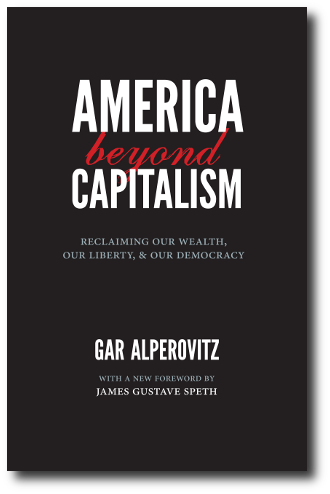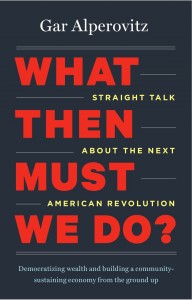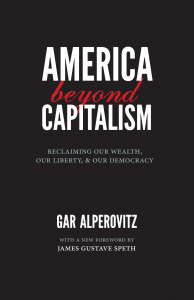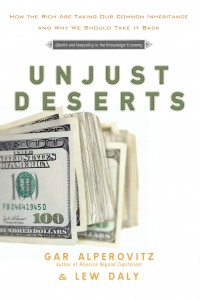This November, I will be taking part in two panels at the ICAPE (International Confederation of Associations for Pluralism in Economics) conference. ICAPE is a fascinating meta-organization which brings together over 30 different groups of “hetererodox” economists, all representing different schools of thought outside the often stifling (and ultimately unproductive) restrictions of mainstream economic dogma.
 The first, on Saturday, November 12, is tentatively titled “Tired of Capitalism? How about Economic Democracy? Sensible Socialism? A Community Commonwealth?”, and will be a discussion between myself and David Schweickart, who has just released a thoroughly reworked and updated edition of his book, After Capitalism. This, incidentally, is a book well worth reading, especially in this latest and much reorganized edition.
The first, on Saturday, November 12, is tentatively titled “Tired of Capitalism? How about Economic Democracy? Sensible Socialism? A Community Commonwealth?”, and will be a discussion between myself and David Schweickart, who has just released a thoroughly reworked and updated edition of his book, After Capitalism. This, incidentally, is a book well worth reading, especially in this latest and much reorganized edition.
What’s perhaps most important about Schweickart’s contribution is that he has, from an economic perspective, actually done the work of fleshing out a developed model for a successor system to capitalism—explaining, in some detail, how a market-based system, bringing together substantial public ownership of industry with expansive democracy inside cooperatively managed firms, could potentially operate. The book thus lays down a gauntlet: even if you don’t agree with some of the decisions he takes in outlining his framework for “economic democracy,” what his book does is force you to answer the question (one of my favorite): what actually do you want if you don’t want capitalism? How would the system you want work? What are its design principles? How is it held together politically, economically, and socially? I’m looking forward to what promises to be a great discussion in November.
I’ll also at ICAPE be speaking on a roundtable organized by Erik Olsen on “Worker Cooperatives, Employee Ownership and New Strategies for a Pluralist Economy.” That session will be taking place on Sunday, November 13th at 9AM.
 AMERICA BEYOND CAPITALISM
AMERICA BEYOND CAPITALISM




 Agenda
Agenda  Posterboard
Posterboard 